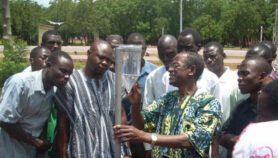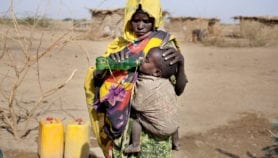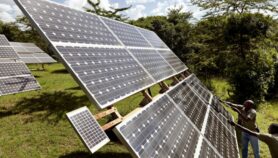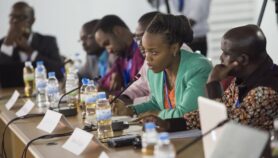28/12/17
Beating plastic bags use in afforestation
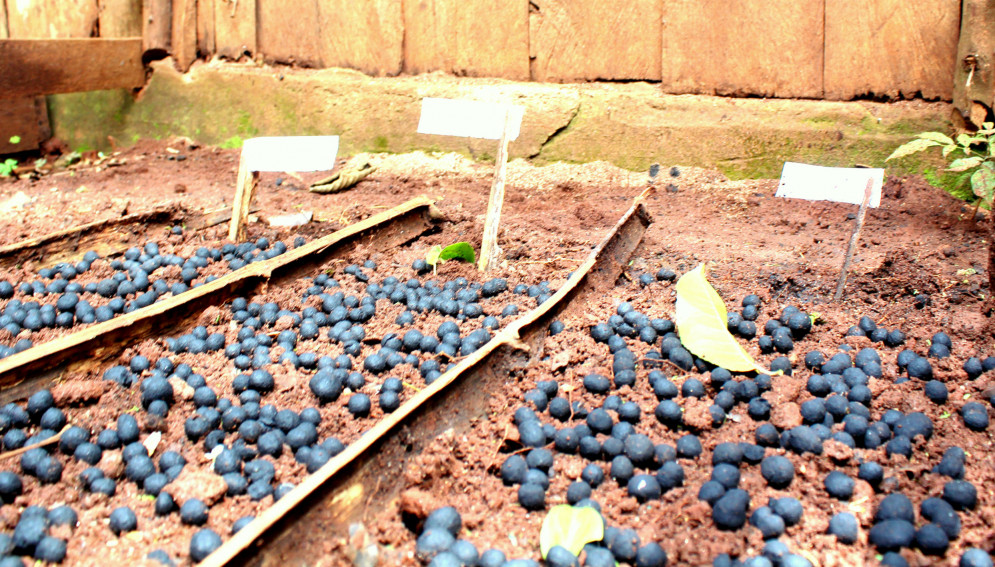
Seed balls of African indigenous tree species suitable for the Nairobi region are displayed in an open space for testing their potential growth rates.
Verenardo Meeme
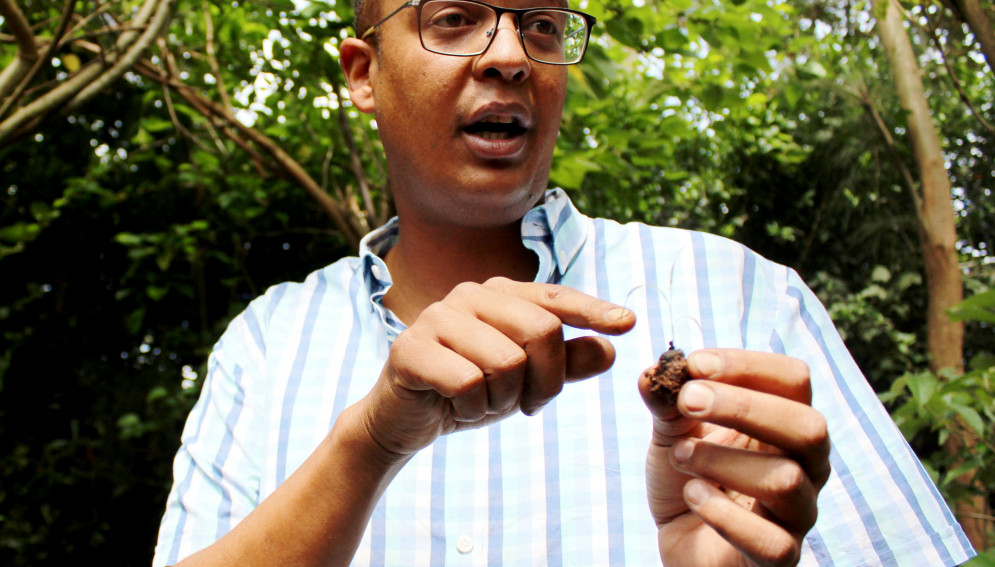


Teddy Kinyanjui shows Maasai grass specie sprout. He says that grass seed bank is diminishing due to overgrazing, especially in Northern Kenya. With his seed balls innovation, he hopes to help restore grass cover.
Verenardo Meeme
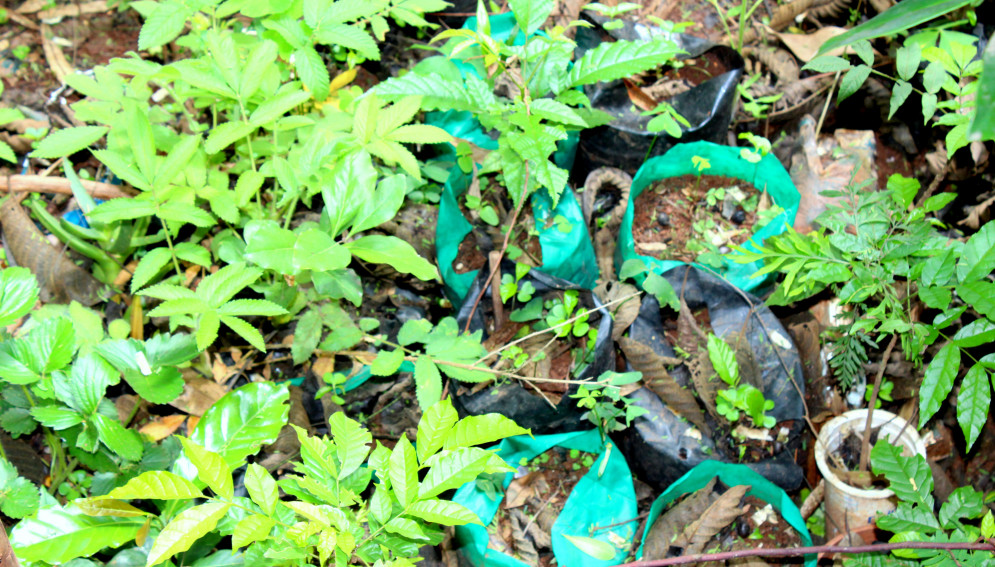


Seedlings in plastic bags, which have been banned by the Ministry of Environment and Natural Resources in Kenya. According to Kinyanjui, the plastic bags squeeze the roots of the seedlings, preventing them from growing naturally.
Verenardo Meeme
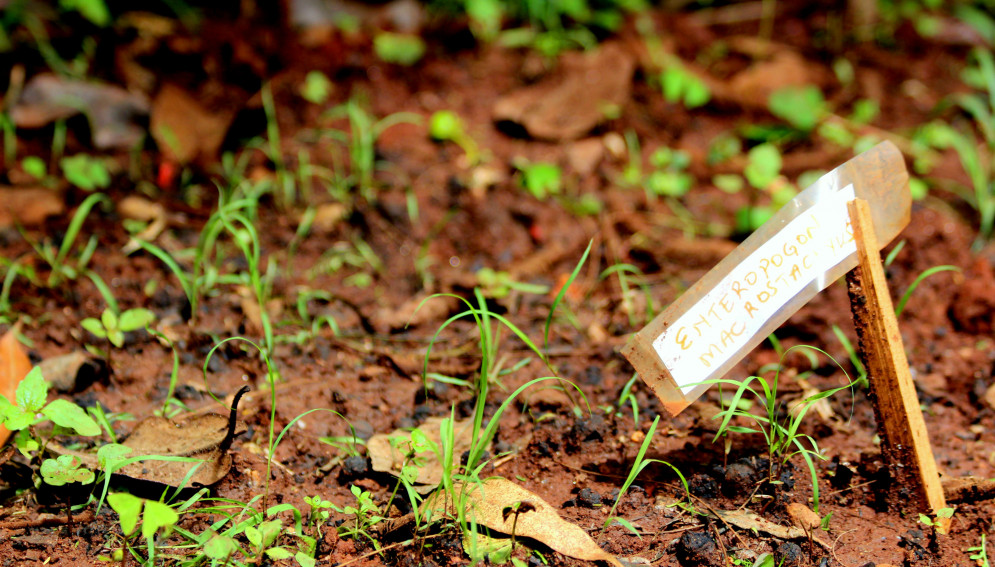


Maasai grass sprouting from seed balls in Kinyanjui’s farm in Runda estate in Nairobi, showing their potential in the field.
Verenardo Meeme
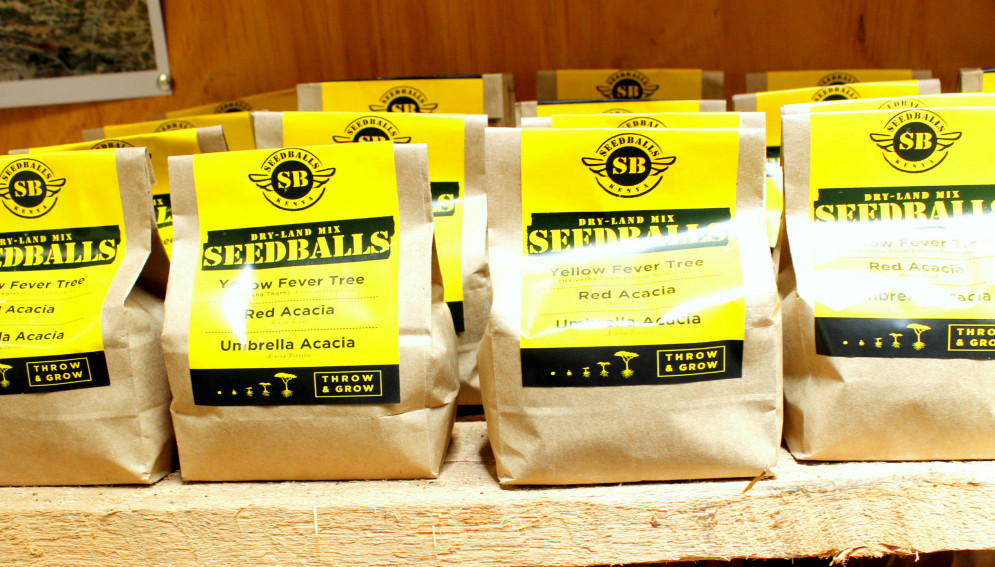


Bags of small, portable seed balls for planting African red Acacia and Cinder species suitable for dry land areas. The seeds are certified by KEFRI.
Verenardo Meeme
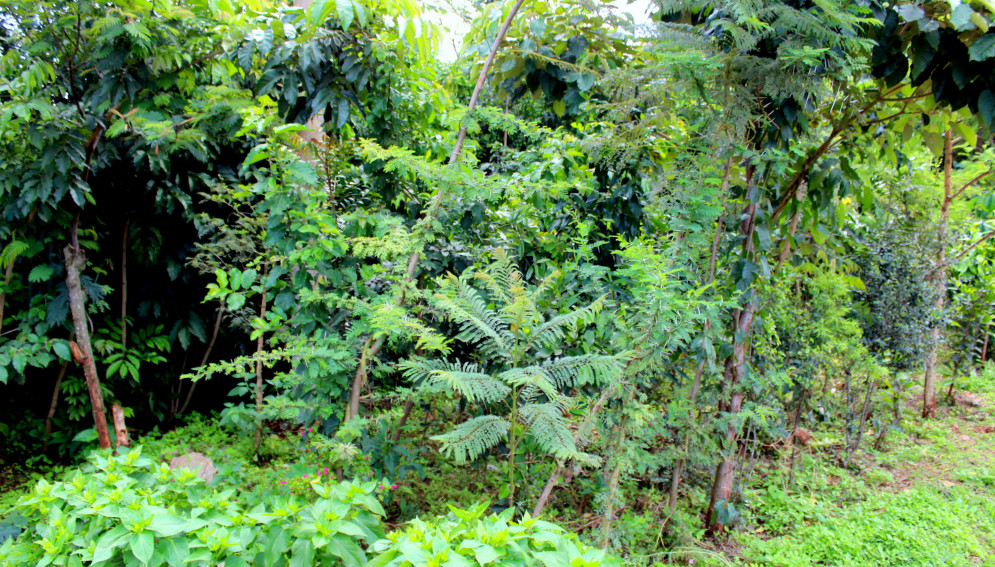


An assortment of indigenous trees at Kinyanjui’s home in Runda estate, in Nairobi. He says all trees were replanted from seeds obtained from the same piece of land.
Verenardo Meeme
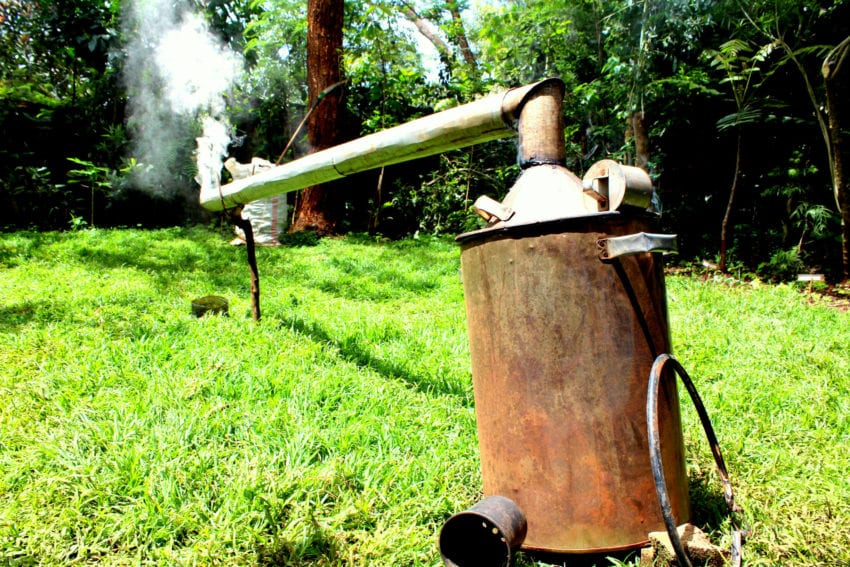


Kinyanjui has come up with a homemade technology of producing charcoal from maize cobs, coconut and trimmed branches. Tree waste can be used instead of cutting trees to make charcoal, he says.
Ally Carter
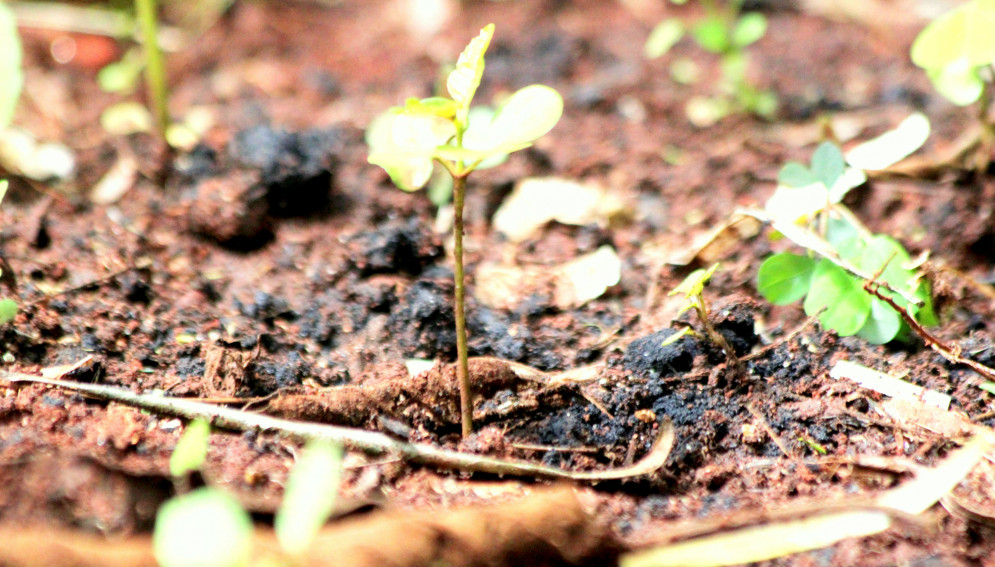


A four-month-old Moringa tree (Moringa oleifera), an indigenous Kenyan specie, sprouting from Kinyanjui’s farm. The tree is used to make tea and has medicinal value.
Verenardo Meeme
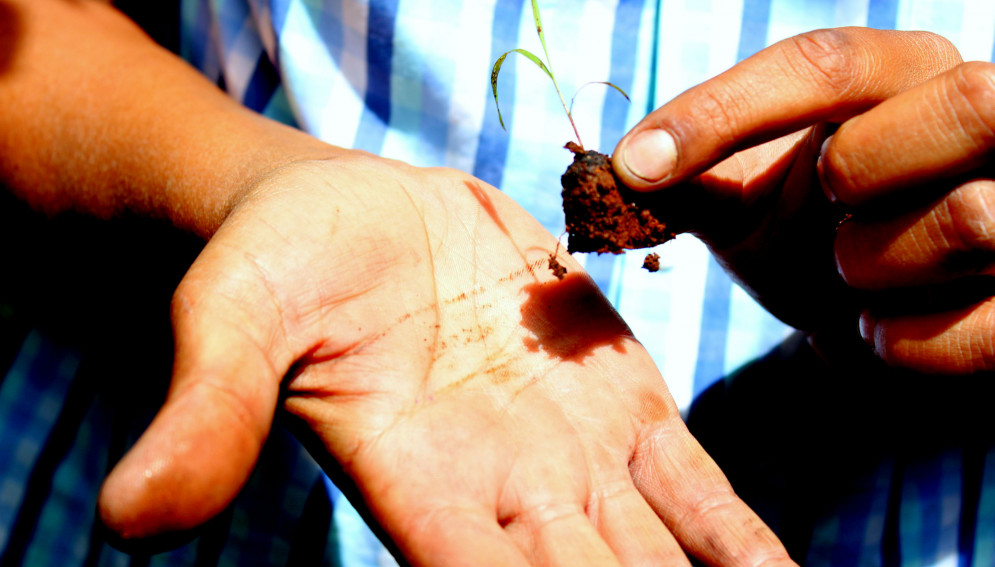


A grass species (Enteropogon macrostachyus) propagated from seed balls with nutritive cover made of charcoal dust and cassava starch. The starch gives the plant the first nutrients it requires to grow.
Verenardo Meeme
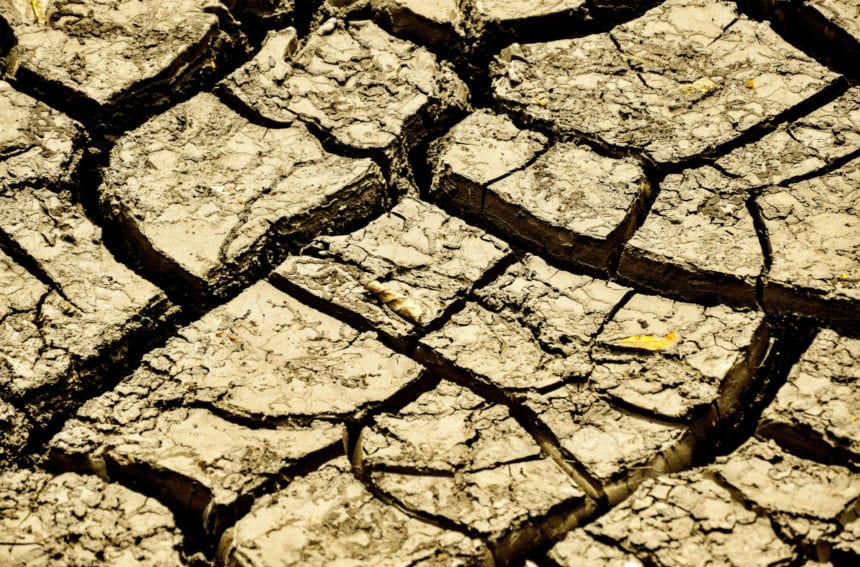


Dry soil showing the impacts of climate change in the arid lands of Northern Kenya, an area with few trees. Kinyanjui says his simple technology can help African communities adapt.
Ally Carter
By: Verenardo Meeme
Send to a friend
The details you provide on this page will not be used to send unsolicited email, and will not be sold to a 3rd party. See privacy policy.
Plastic bags are known to disrupt the environment. For instance, once in the soil, they slowly release toxic chemicals. When animals eat them, they often choke and die.
Kenya, this year, banned the use of plastic bags. But thanks to a 34-year old Kenyan, Teddy Kinyanjui, an innovative afforestation and reforestation method for developing seedlings without using plastic bags is in place. He is working in partnership with Kenya Forestry Research Institute (KEFRI), which certifies seeds.
“Good environmental management is, therefore, crucial for peace among pastoral communities.”
Teddy Kinyanjui, Cookswell Jikos Limited
Kinyanjui, a resident of Nairobi, Kenya, and founder of the charcoal business Cookswell Jikos Limited, has invented portable small seed balls for easy dispersal.
This photo gallery shows Kinyanjui’s ingenuity in using seed balls instead of the usual plastic bags to grow seedlings. Kinyanjui says he discovered that seeds require nutrition to grow. Seeds require nutrition to grow, and Kinyanjui has engineered a method of coating each seed with charcoal dust and corn or cassava starch to bind each ball to protect the seeds from prey, pests and diseases.
He says he has the capacity to make one tonne per day. So far, since the project’s initiation in 2016, about one million seeds of different species of certified indigenous trees have been dispersed throughout Kenya through partnerships with locals. His approach has a germination rate of 60 per cent.
“People use charcoal everyday necessitating for more trees. Climate change has also caused community conflicts, especially among pastoralists in Northern Kenya who fight over pasture for their animals,” Kinyajui says. “Good environmental management is, therefore, crucial for peace among these communities.”
According to Kinyanjui, when tree seedlings are grown in plastic bags in nursery, the roots get squeezed and lack ability to grow fast. Seed balls will enable roots to adapt very easily and the method encourages less root disturbance.Kinyanjui hopes to partner with like-minded organisations and youth who herd livestock with slings to disperse more seeds in arid lands.
“We would [also] like people to see the value of this simple technology as a contributing factor in combating and adapting to effects of climate change as this is the cheapest way to encourage tree planting, especially in arid and semi-arid areas,” Kinyanjui says.






